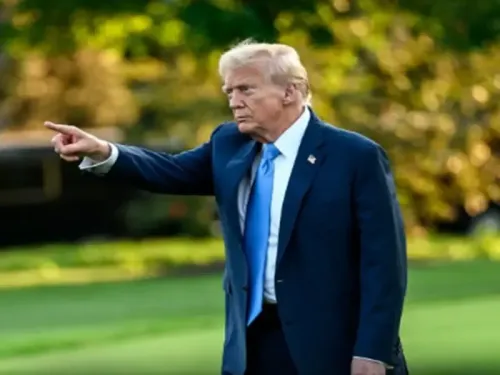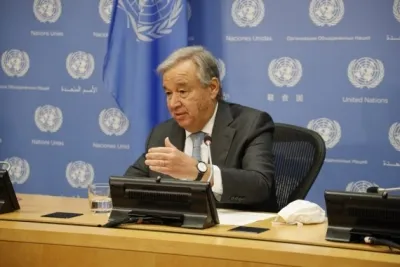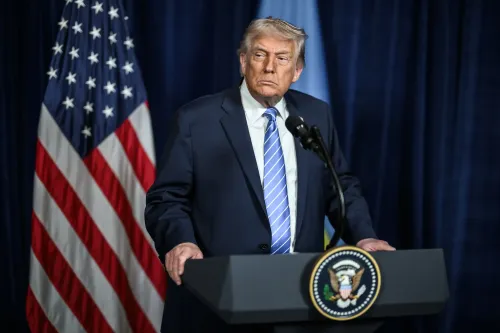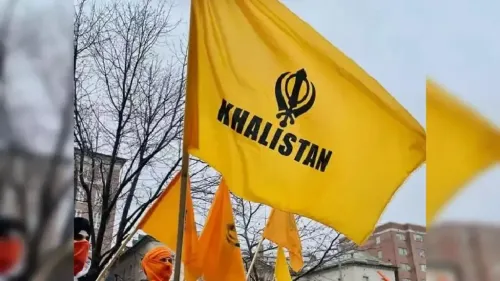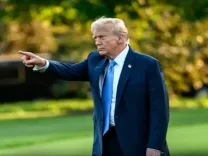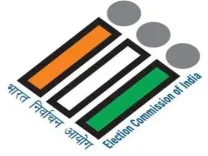Is EAM Jaishankar Leading the Charge for UNSC Reform and Pacific Engagement?
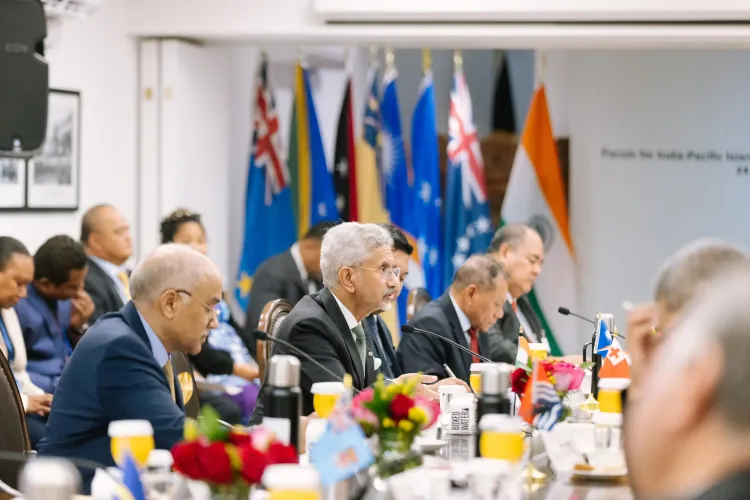
Synopsis
Key Takeaways
- Jaishankar's active diplomacy at the UN highlights India's commitment to reforming the Security Council.
- The L.69 and C10 meetings aim to unite the Global South in advocating for change.
- India's engagement with Pacific nations focuses on development and capacity building.
- Support for Cyprus emphasizes India's adherence to international law.
- Strengthening bilateral ties with various nations is a priority for India's foreign policy.
United Nations, Sept 25 (NationPress) External Affairs Minister (EAM) S. Jaishankar has been actively engaging with high-ranking officials during this pivotal session, orchestrating discussions on Security Council reform and outreach to the Pacific region.
He also took the opportunity to meet individually with several foreign ministers to assess and enhance bilateral relations.
In a bid to advance Security Council reforms, which remains a key agenda for India, Jaishankar hosted the second edition of the L.69 and C10 Joint Ministerial meeting on Wednesday (local time).
“We convene with a shared goal—to advocate for comprehensive reforms of the UN Security Council as representatives of the Global South,” he stated.
The C-10 is a committee comprised of ten influential members of the African Union, including Egypt, South Africa, Kenya, and Nigeria, while the L.69 is a coalition of 42 nations from the Global South working towards Security Council reform.
Following the 13-member Forum for India–Pacific Islands Cooperation (FIPIC) meeting, he expressed on X his satisfaction with the progress of the 12-point action plan introduced by Prime Minister Narendra Modi in 2023 at the group's summit in Papua New Guinea.
“India and Pacific Island countries are development allies. Our focus is on a people-centric agenda, emphasizing health, technology, capacity building, and training,” he remarked regarding the 12-Point Plan.
In his meeting with Cyprus Foreign Minister Constantinos Kombos, Jaishankar reiterated India’s commitment to a comprehensive and enduring resolution of the Cyprus Question in line with the agreed UN framework and relevant UNSC resolutions.
Turkey’s invasion of part of Cyprus in 1974 continues to violate Security Council resolutions, as it maintains its military presence in the area.
Kombos expressed gratitude on X for India's longstanding principled support on the Cyprus Issue and its commitment to upholding international law.
“Our discussions centered on advancing the Cyprus strategic partnership, relevant international matters, and priorities for the upcoming Cyprus Presidency of the European Union Council,” he added.
During a meeting with Mexico's Foreign Secretary Juan Ramon de la Fuente, Jaishankar emphasized, “We agreed to leverage our recent dialogues and establish a new roadmap for strengthening our bilateral partnership.”
Among other foreign ministers Jaishankar interacted with were Denis Moncada of Nicaragua, Frederick Stephenson of St Vincent and the Grenadines, Mauro Vieira of Brazil, Kalani Kaneko of the Marshall Islands, Paulson Panapa of Tuvalu, Gustav Aitaro of Palau, Aisake Valu Eke of Tonga, and Peter Shanel Agovaka of the Solomon Islands.


